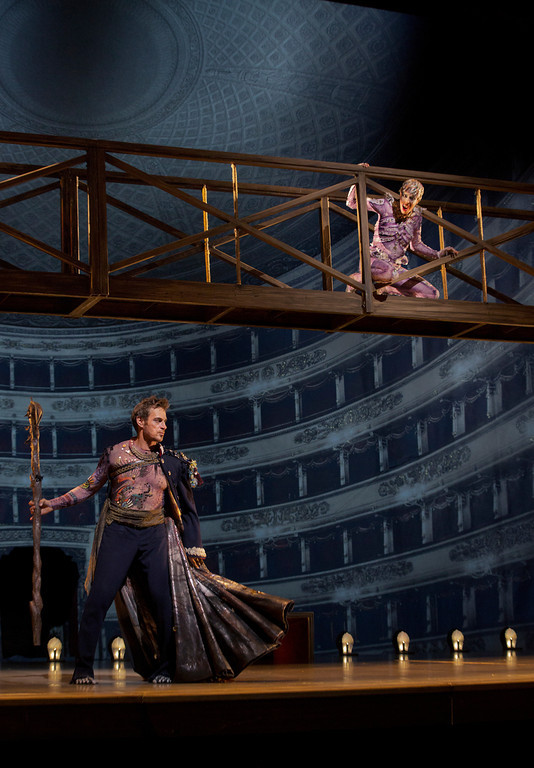 by Francisco Salazar
by Francisco Salazar(For the November 6, 2012 Performance)
Shakespeare has been the subject of many composers' masterpieces from Verdi with Macbeth, Otello, Falstaff, Rossini with Otello, Britten with Midsummer Night's Dream and Wagner with Measure for Measure (one of his earlier operas). In 2004 Thomas Ades joined this circle with an adaptation of The Tempest, Shakespeare's 1611 play. Meredith Oakes adapted the work and according to Ades used modern English to be all the more faithful and concentrate on the drama. The work tells the story of Prospero who has been exiled from Naples by his brother Antonio and seeks revenge.
According to Ades, he set the music to be faithful and sought to give each character a different palette of music in order to fully flesh the multi-faced aspects of the drama. While I don't mean to criticize his score because it has lots of merit, the music did not do much for me. Going into the opera I knew the music was difficult to follow and could get a little austere at times. However I thought that seeing it live would be a better experience than on recording. The result was the opposite. Ades' score never really builds and while it has some ravishing moments such as the opening Storm (a tumult of strings and winds that creates the effect of unbridled fury) and the Miranda and Ferdinand duet at the end of act two (which builds to ecstasy with the strings and winds crescendo to one of the more memorable melodies), The Tempest's music is rather bland and forgettable. I commend Ades for giving each character a specific type of music. For example the spirit Ariel is characterized through her high tessitura and eeriness in color. Ariel never descends from high D's, E's, F's and even G's and has some of the more energetic music in the work. Prospero on the other hand never has any sort of melody and music is characterized by the gruff orchestration. The two lovers Miranda and Ferdinand get the most romantic music with some lush melodies and the most legato singing. All these features enhance the score but the biggest problem is that you never really feel a climatic moment in the opera as the music becomes monotonous by the end of the work and the audience is never given an opportunity to feel the cathartic moments that Prospero or any of the characters feel.